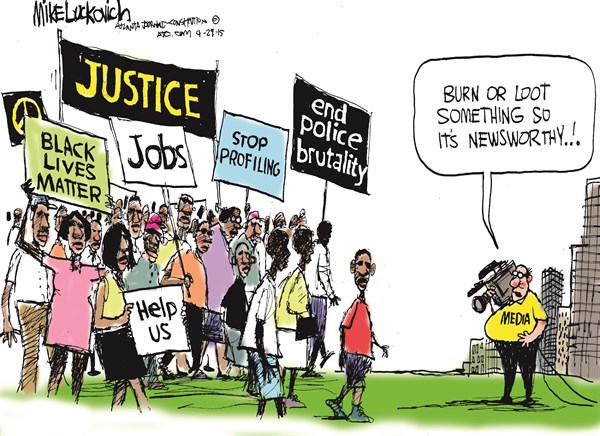For those old enough to remember, scenes from Baltimore conjure up images from the 1960s, standard-bearer for racial unrest in the modern civil rights era. Were the Baltimore riots (and events perhaps yet to come) the result of the mistreatment of just one man? Or is there more involved? As the national economy ebbs and flows, prosperity in this age of acquisitive individualism appears to have bypassed Baltimore’s inner city neighborhoods, which remain largely unchanged in 50 years.
Why did they riot in Baltimore? Why did they riot in the 1960s? Are events related?
The 1960s riots took place in the Watts
section of Los Angeles , as well as several other
major northern US cities,
including Chicago , Detroit ,
Milwaukee , Washington ,
D.C. and Newark . The riots were not confined to the US ,
however. Great
Britain and South Africa
also experienced race riots during this time.
The riots had
begun in 1965, due to mounting civil unrest, and continued for three successive
summers. President Lyndon Johnson appointed a federal commission on July 28,
1967, while rioting was still in progress.
He determined to learn the
cause of the race riots and unrest. Upon signing the
order establishing the commission, the president asked for answers to three
basic questions about the riots: “What happened? Why did it happen? What can be done to prevent it from happening
again and again?”
The commission’s
final report, named the Report of the
National Advisory Commission on Civil Disorders, or Kerner Report, was released on February 29, 1968, after seven months of investigation. The
426-page document became an instant best-seller, with over two million
Americans purchasing copies. Its basic
finding was that the riots resulted from black frustration at lack of economic
opportunity. Dr. Martin Luther King, Jr.
critiqued the report a “physician’s warning of approaching death, with a
prescription for life.”
One of the commission’s core findings was
that the federal government had engaged in unfair and discriminatory loan
practices. For example, in important
matters of employment, education and housing especially, federal low interest
loans under the GI Bill were made available to World War II and Korean war
veterans who were white, as an incentive to flee to the “safety” of the
suburbs, where a better quality of life awaited. Black veterans were illegally denied equal
treatment under the law.
The Kerner Report’s
most infamous passage warned, “Our
nation is moving toward two societies, one black, one white --- separate and
unequal.” The report berated
federal and state governments for failed housing, education and social service
policies, also aiming some of its sharpest criticism at the mainstream media:
“The press has too long basked in a white world looking out of it, if at all,
with white men’s eyes and white perspective.”
 The federal commission concluded that the
riots were the result of poverty, police brutality, poor schools, poor housing,
attributed to “white racism” and its heritage of discrimination and
exclusion. The equation was a simple
one: no education, no job, no housing and no political power equaled no hope.
The federal commission concluded that the
riots were the result of poverty, police brutality, poor schools, poor housing,
attributed to “white racism” and its heritage of discrimination and
exclusion. The equation was a simple
one: no education, no job, no housing and no political power equaled no hope.
Following the riots of the 1960s, America ’s
suburbs continued a trend of becoming more white and its cities more
black. This phenomenon occurred as much
in the North and on the West Coast (Newark , Detroit , Chicago , Philadelphia , Trenton , Camden , Cleveland , Oakland and Los Angeles ) as
in the South (Atlanta
and Charlotte).
The Johnson
administration had the report analyzed but dismissed its
recommendations, however, on budgetary grounds. Soon the Great Society would be sidetracked anyway by external events in a far away place called Vietnam
Is this some of what's going on --- and not going on --- in Baltimore?
Is this some of what's going on --- and not going on --- in Baltimore?
-Michael D'Angelo
If you're white, then there's a fair chance you don't see it. What are the conditions necessary to obsess an ordinary citizen to riot?
ReplyDeletehttp://www.truthdig.com/images/made/images/cartoonuploads/eqjustice_590_396.jpg